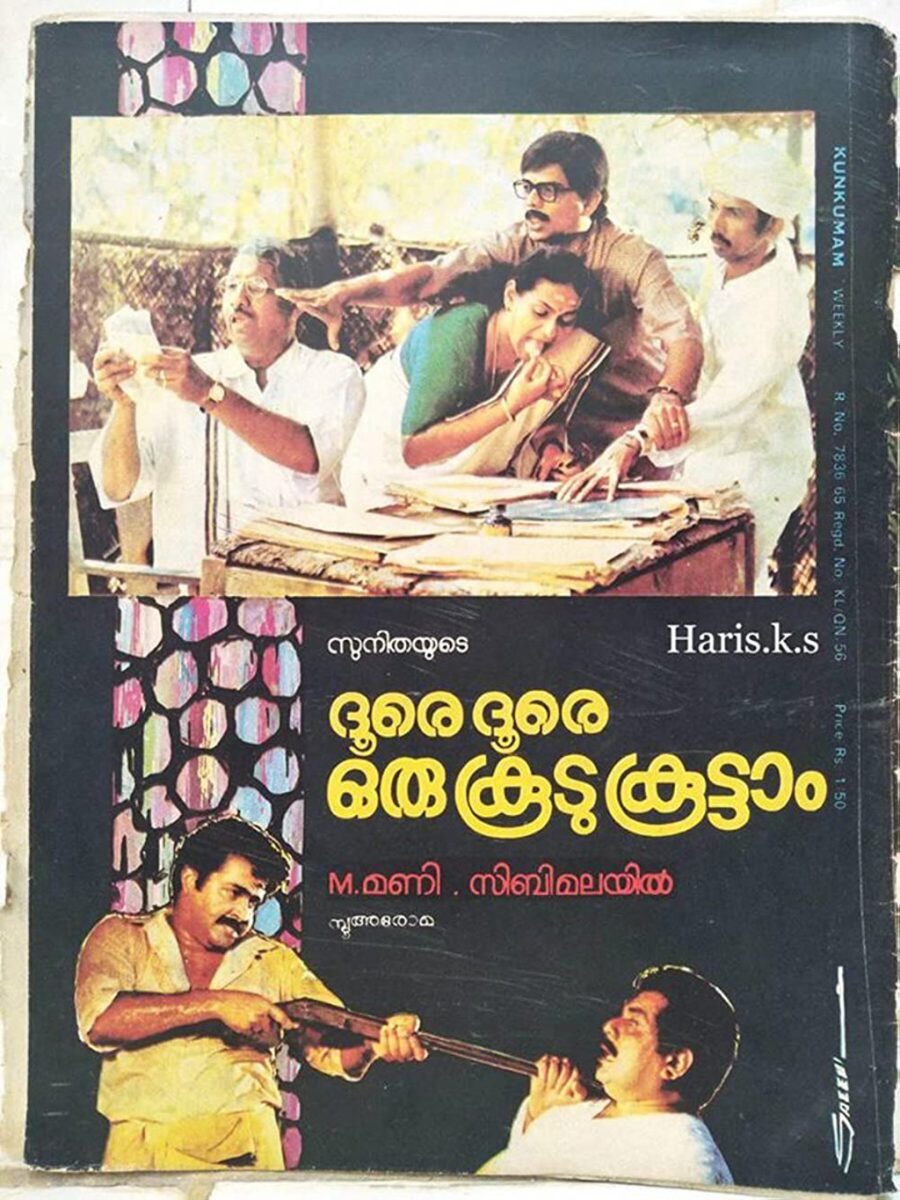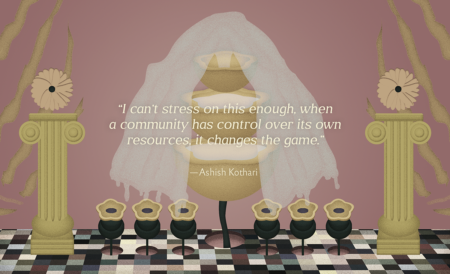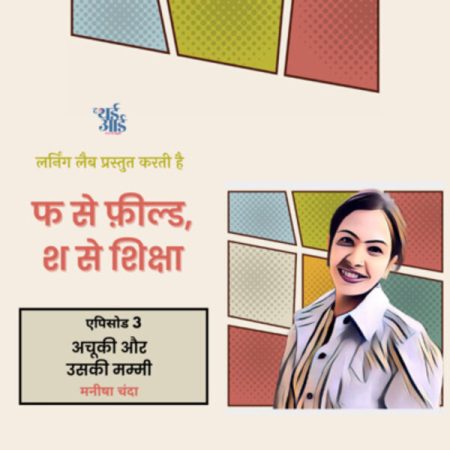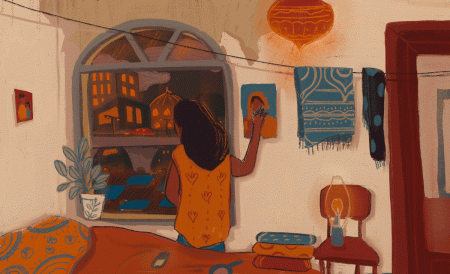It is often said that a film should either entertain, engage, or educate (not in the same order though). And in our country, one obsessed with cinema, we expect a film to entertain us and make everything larger than life and extraordinary. Which is fine, since films aren’t meant to be prescriptive anyway. It is the storytelling that holds it all together. Having said that, films on education are not the same as educational films.
Here is a list of a few films (in no particular order) that show us different facets of education in India (without making us feel like we are inside a classroom).
1
Mahalle School: Family Going Live
(Dir. Akshay Pradip Ingle, 2021, 10 mins)
Janu and Vedu are attending classes online for the first time. These two children are inquisitive, but sometimes a bit rebellious too. They explore this new world together with their parents.
This slice-of-life film looks at the online classes during the peak of the pandemic and Government-imposed lockdown. It follows siblings—Janu and Vedu—and documents all that they share, from the screen to their own space to banters, to data packs and even their mother’s attention. Set indoors in a middle-class Marathi household, the camera chooses to be so unobtrusive with its gaze that the kids find comfort in it. They speak to the camera and, sometimes perform for it—bringing out the whims and eccentricities of this family. For instance, in one sequence, Janu, wearing shades, does an action number for the camera.
The camera pans and we see the father, a government school teacher, making videos in front of a whiteboard,
which are to be uploaded later.
This short documentary is about many such moments that lie outside the Zoom boxes. This is a film about ‘home’, behind-the-scenes of online classes, and the everydayness of a period when nothing was normal. The subtitle – ‘family going live’ – is perfect.
2
Placebo
(Dir. Abhay Kumar, 2014, 1 hour, 36 mins)
A filmmaker infiltrates one of the toughest undergrad schools in the world to witness the ambition and mindscapes of the youth.
“Right-handed AIIMS doctor clears UPSC with left hand.” The doctor mentioned in this 2015 headline, Sahil Kumar “lost fine motor movements in his right hand after it got brutally jammed in a window.” What the story doesn’t make clear was that he was the victim of violence during a college festival in AIIMS. A couple of years after the incident that nearly cost Sahil his career, his brother Abhay released a remarkable investigative documentary about Sahil’s alma mater.
For two years, Abhay had captured life inside the AIIMS hostel on phones and handycams.
3
An Engineered Dream
(Dir. Hemant Gaba, 2018, 48 mins)
A film about the academic pressure cooker that is Kota, a city in Rajasthan, famous for its coaching institutions that prepare undergraduates for their competitive exams.
This film can be seen as a companion piece to Placebo but with here the protagonists are teenagers studying to ‘crack’ the IIT exam. It follows the journey of four students from various parts of the country who travel to the mecca of engineering coaching—Kota. In this film, the characters are either be seen around piles and piles of books and papers or from a birds-eye-view, on a conveyor belt, with and loads of other aspiring IITians,. The filmmaker doesn’t refrain from engaging in banter that goes from porn to poop to dopamine formation. At the same time, it also captures the dreams and anxieties of the parents of these aspirants. The film is a portrayal of the claustrophobic and nerve-wracking experience of being in one of the most bizarre hubs of competitive exams.
4
Happiness Class
(Dir. Samina Mishra, 2021, 51 mins)
Happiness Class, a documentary film, explores the idea of happiness through the Happiness Curriculum introduced in Delhi government schools in 2018.
Can happiness be taught in a classroom? The film has school kids answer such questions and provide insight into the making of a happiness curriculum and its first hand effect on a learner. “You close your eyes and experience mindfulness, it tends to clear your head”, someone says in the film. The film explores the Aam Aadmi Party’s 2018 initiative in Delhi government schools which employs techniques such as mindfulness, reflective stories, interactive activities, and expression to equip pupils with the necessary skills and mindsets to answer the following questions: What makes me happy? How can I be an instrument in other people’s happiness? The film does a deep dive using animation, musical video style treatment with rap songs, childrens’ drawings. It also speaks to teachers and parents to document their perspective on the Happiness Curriculum.
5
A Rifle and a Bag
(Dir. Arya Rothe, Isabella Rinaldi, Cristina Hanes, 2020, 1 hour, 29 mins)
Somi and her husband strive to forge a new identity after fighting alongside the Naxalites. After a decade of armed struggle for the rights of their tribal communities, the couple deserted the movement in Chhattisgarh and surrendered to the police. Ever since, they have been trying to educate their son and reconcile their past with their desire to integrate into Indian society.
What lies outside a revolution? How do you start afresh? Shot between 2017 and 2019, this documentary uses an empathetic lens to look at the journey of an ex-Naxalite couple and their new life. Living in a colony in Maharashtra with other former Naxalites, they see education as a means of upward mobility and want their child to get into school. Here begins their struggle with the bureaucratic system.
One piece of paper—a caste certificate—poses as a massive hurdle in the road to enrolling their six-year old in school.
The observational and unhurried camerawork, captured in long takes, makes the film meditative as it goes back and forth between the memories of their past and the myriad ways in which it obstructs their future.
The film is currently streaming on MUBI.
6
Nil Battey Sannata
(Dir. Ashwiny Iyer Tiwary, 2015, 1 hour 40 minutes)
Apeksha hates studying since she thinks it is a futile effort owing to their financial status. To solve this problem, her mother, Chanda, comes up with a unique strategy to motivate her daughter.
This was probably one of the first mainstream films to feature a story around adult women in school and it stars Swara Bhaskar, Pankaj Tripathi, and Ratna Pathak Shah. It is a feel-good film that tells the story of a high-school dropout single mother who now works as a maid and does plenty of menial jobs to keep the house running. It captures the mother-daughter dynamic in all its complexities. It takes you inside the classroom with them and shows you how it feels to have your mother as your classmate who you now have to compete with in academics
NOT SO SIDE NOTE: We can’t wait for you to watch our Edulog fellow Shuvangi Khadka’s film Age of Learning. This film about adult women learners began with Shuvangi’s fascination about a time in her childhood when her mother had returned to primary school and was bringing report cards home. Read more about it here.
7
I am Kalam

(Dir. Neela Madhab Panda, 2010, 1 hour 28 minutes)
Chotu, a poor boy, derives inspiration from the former President of India APJ Abdul Kalam. He then decides to change his name to Kalam and harbours a dream of meeting the visionary.
This is a film that talks about identity, education, and the class divide. Chotu is around ten years old and works in a roadside dhaba to help his mother. He is keen to learn. He becomes friends with another child who is roughly his age, but belongs to a rich family and hence goes to school and speaks English easily. The film highlights school education, both as a path to upward mobility and as a site of exclusion. The bond between the two kids remains a special one, showing how learning goes a long way when shared and can help transcend class and caste differences.
8
Aaj School Javanu Che Tamare? (Are you going to school today?)
(Dir. Anupama Srinivasan, 2018, 59 minutes)
The title question is relevant every day for teachers and children in rural schools of southern Rajasthan. In areas with many children from challenging backgrounds, how does one bring them to school and create an environment that motivates them to study?
The film doesn’t answer the question asked by its title but in fact does much more than that by focusing on the school—a place made of more than just bricks. The kids in this film are not just going to school but also running their households. What goes on in their lives after school hours? The voice of the filmmaker from behind the camera is a driving force, asking questions to everyone—teachers, kids, and their parents. This part observational and part interview-driven film captures the school as a space carrying many stories inside itself. It also speaks to women working in their households where they share their memories of childhood and learning. This is a fantastic film for anyone who is trying to understand the workings of rural schools.
And if you want more, you could watch our wonderful video series – Teacher Talks.
9
Kairee
(Dir. Amol Palekar, 1999, 1 hour 33 minutes)
After her sister’s death, Tani welcomes her niece into her house and enrols her in a school. Her husband isn’t pleased with the arrival of the little girl, but Tani is determined to nurture her.
Winner of the National Film Award for Best Film on Other Social Issues, this film was commissioned by the Ministry of Health and Family Welfare and is an adaptation of a Marathi short story by G.A Kulkarni. The film is a coming-of-age story but also traces Tani’s grief after losing her sister, Kamli. The loss looms large but also leads to a deep connection between Tani and her niece.
Tani (played by Shilpa Navalkar) enrols her niece (Yogita Deshmukh) in a school where she is the only girl. Her time at school starts with fighting for her position among the boys clubs and, in no time, she is seen leading the club.
Look out for the adorable scene where she gets her aunt to put a butterfly sticker on her uniform in order to hide the ink stain. Next thing we know, the classroom is full of animal stickers.
Her stint at this school ends because of financial problems and her aunt calling out the teacher’s bad behaviour.
For the little girl, her Tani masi becomes her favourite person in the world. Tani lives in a marriage where her husband cheats on her. Though, instead of breaking, she stands strong and offers hope to her niece in more ways than one. She watches and learns from her aunt. There is a series of beautiful moments where these two walk, eat, cook, and just talk. The aunt also goes on to drop major life lessons in these conversations: “Look around, question and that’s how you will know the world” (“Aas pass dekh, sawaal pooch—apne aap sab samajhne lagegi”). The film addresses a lot of epiphanies and thoughts in the form of the niece’s inner voice — a sharply written character. It’s refreshing to see the adults too sharing their vulnerabilities with her—whether it’s the stammering school master who breaks down in front of her or her Tani masi who sends her off to pursue bigger and better things in life.
Here Amol Palekar talks about the film.
10
Salt Mango Tree
(Dir. Sibi Malayil, 1986, 1 hour 59 minutes)
After acquiring fake degrees, Divakaran decides to teach in a government school that is run by corrupt individuals. However, when he sees the children suffering, he decides to change the system.

Among the comic situations that emerge is the iconic scene in which Divakaran (played by Mohanlal) attempts to translate ‘upma’ into English and somehow arrives at ‘salt mango tree’.
This phrase inspired many things including the name of a 2015 Malayalam movie about educational aspirations that was in turn remade as Hindi Medium in 2017.
11
Vaagai Sooda Vaa (Ineya's masterplan to get money from Vimal)
(Dir. A Sarkunam, 2011, 2 hour 3 minutes)
Veluthambi, who aspired to have a government job, starts teaching poor children in a village. When he learns that they are appointed as bonded labourers, he decides to bring about a change.
Set in 1960s Tamil Nadu, Vaagai Sooda Vaa is the story of a community without a school and a young man who arrives there to teach the children. Veluthambi (played by Vimal) wants a government job but decides to bide his time as a teacher in an NGO’s literacy programme. The programme sends him to a very dry and tiny village in Puddukottai where everyone works for the local brick kiln. No one has any time for or interest in Velu’s saviour tendencies. The movie is about how Velu turns things around and convinces the adults that education is useful for the children. Vaagai Sooda Vaa was praised for its soundtrack and very careful attention to historical details.
12
A Night of Knowing Nothing
(2021, Dir. Payal Kapadia, 1 hour 39 minutes)
A university student in India writes letters to her estranged lover. These letters grant insight into the drastic changes taking place around her and the life of her and her fellow students.
The film looks at the student protests in FTII and other higher educational institutions in India, by centering the deeply intimate letters by its narrator ‘L’, written to her absent lover.





